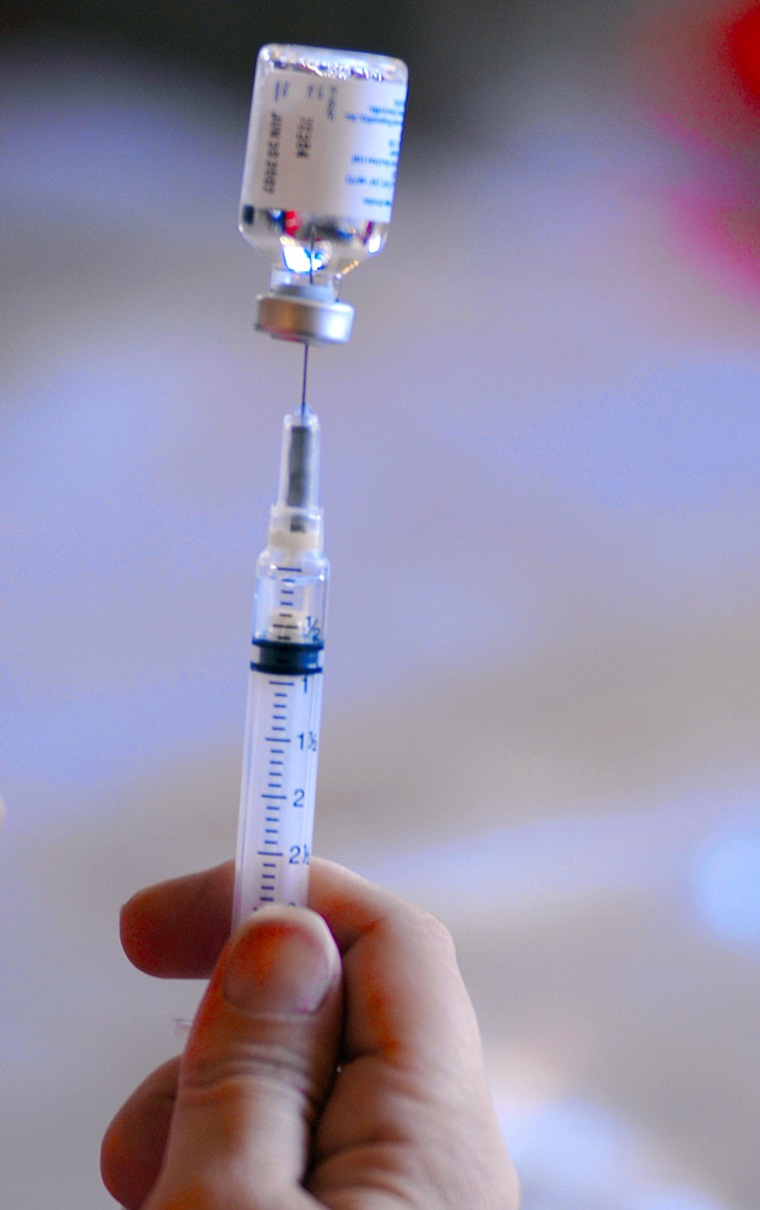The U.S. government said Monday it had contracted for $200 million more worth of vaccines against the H5N1 avian flu virus.
The Department of Health and Human Services said it had awarded contracts to three drug makers — sanofi pasteur, Novartis and GlaxoSmithKline — for enough doses to cover 2.7 million people.
The vaccine will be formulated against a new strain, or clade, of H5N1 that has emerged in recent months.
“Having a stockpile of influenza vaccine that may offer protection against the H5N1 virus is an important part of our pandemic influenza preparedness plan,” Health and Human Services Secretary Mike Leavitt said in a statement.
Leavitt said the new vaccine will add to the existing stockpile of 5.9 million doses of H5N1 vaccine, which is enough to vaccinate about 3 million people because two doses are needed to achieve full immunity. The precise value of the contracts is $199.45 million.
HHS eventually plans to buy and stockpile enough vaccine for 20 million people.
The H5N1 avian flu virus mostly affects birds, but it can occasionally infect people. It has infected 258 people in 10 countries — Thailand, Vietnam, Indonesia, China, Turkey, Azerbaijan, Iraq, Egypt, Djibouti and Cambodia — and killed 153 of them.
Experts are concerned that the virus will evolve into a form that people can easily catch and pass to one another, in which case the transmission rate would soar, causing a pandemic in which millions of people could die.
Vaccine not a perfect match
Any stockpiled H5N1 vaccine would not perfectly match whatever new strain emerges, but studies suggest it might help protect people from death.
Glaxo said it would make 800,000 doses at its newly bought factory in Pennsylvania, the first time the company will be making bird flu vaccine in the United States.
“Additionally, HHS also has the option to purchase pre-pandemic vaccines together with one of GSK’s proprietary adjuvant systems, which could mean that less antigen would be needed per dose to achieve a protective immune response,” the company said in a statement.
Adjuvants are compounds added to vaccines to make them more effective.
“The three awards include a $117.9 million contract to sanofi pasteur for 3.7 million doses, a $40.95 million contract to Novartis for 800,000 doses and a $40.6 million to GlaxoSmithKline for 800,000 doses,” HHS said in its statement.
In May, HHS announced more than $1 billion in contracts to five companies to develop better flu vaccine and manufacture them in the United States. The new technology would make vaccines using lab dishes of cells, instead of the current slow, unwieldy and uncertain method that uses eggs.
“This contract covers clade 2 of the H5N1 virus (A/Indonesia) for use in the U.S. government stockpile. Previous stockpile contracts covered the clade 1 form of H5N1,” sanofi pasteur said in a statement.
“Manufacturing and stockpiling more than one clade of H5N1 vaccine is strategic because circulating H5N1 influenza strains are mutating and diverging into distinct ... groups.”
